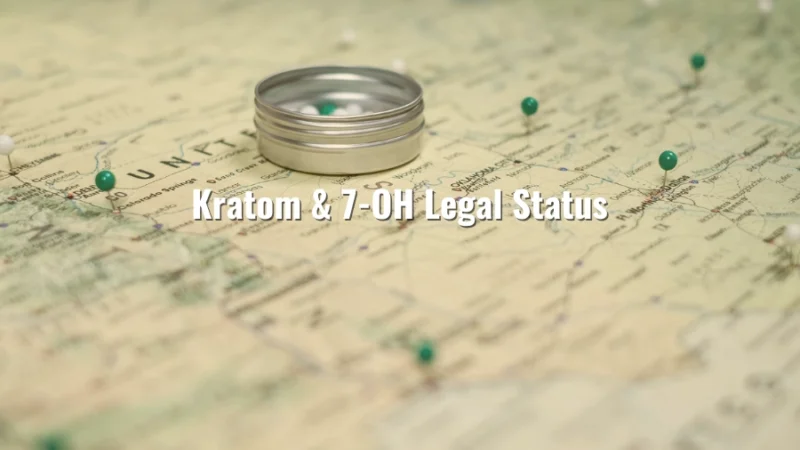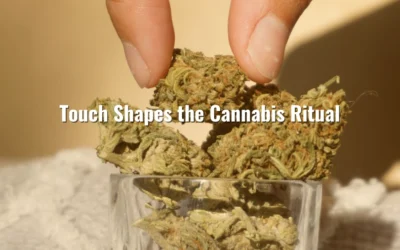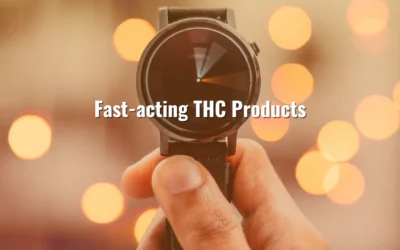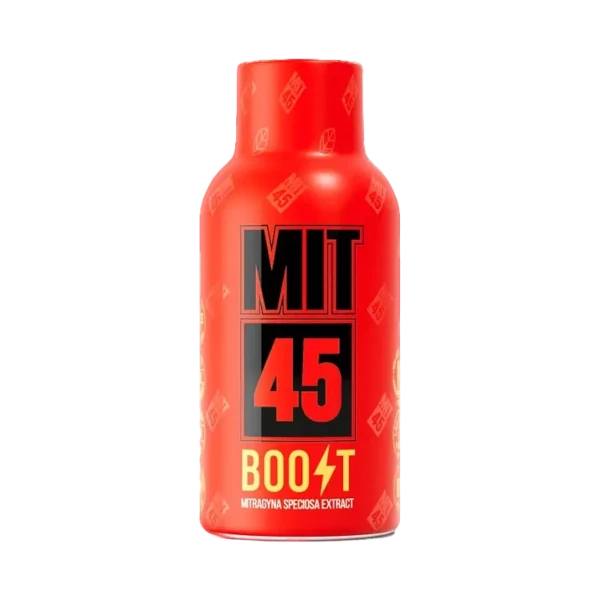Most of the people who stop by our shop in Austin are here for the usual: a new strain, a favorite gummy, maybe something fast-acting to get them through the week. But since the beginning of the year, another plant has been climbing the charts: Kratom. Especially 7-OH products. They’ve become a go-to for focus, calm, or just winding down without reaching for THC.
While shelves look normal here in Texas, customers in Florida woke up to a different story last week. Overnight, 7-OH products disappeared. One day they were legal, the next they were contraband. No chance to stock up, no warning. Just gone.
If that sounds far away, it’s not. Florida’s move is a reminder of how fast these markets can shift, and how quickly a product you count on can be swept off the table. Texas hasn’t gone there yet, but with lawmakers already circling hemp and THC, it’s fair to ask: how long before kratom takes center stage?
Blog Summary:
Behind the shelves and products you see every day, there’s a bigger story unfolding: one that involves lawmakers, regulators, and sudden decisions that can flip the market overnight. Here’s what we’ll uncover together:
- The sudden twist that left one state’s consumers waking up to empty shelves.
- How current rules in Texas protect kratom.
- The ripple effects of new hemp and THC legislation.
- The bigger picture across the U.S.
- What practical steps you can take today to avoid being caught off guard.

Table of Contents:
- Florida’s Ban: What Happened and Why It Matters
- Texas Today: Where Kratom and 7-OH Stand
- The Legislative Storm in Texas
- Possible Futures for Kratom & 7-OH Regulation
- What You Can Do
- Stay Equipped, Stay Consistent
Florida’s Ban: What Happened and Why It Matters
On August 13, 2025, Florida threw a curveball at the kratom world. Attorney General James Uthmeier announced (and immediately put into effect) an emergency rule labeling 7‑hydroxymitragynine (7‑OH) as a Schedule I controlled substance under state law. That means concentrated forms like shots, gummies, and powders are now treated like heroin or LSD in the eyes of Florida’s judicial system.
The move came without warning. That same day, retailers were required to pull 7‑OH products off their shelves. All without a phase-in or official memo beforehand. Just “effective immediately” in the legal notice.
Why such urgency? State officials cited three key concerns:
- Potency: Regulators leaned hard on the claim that synthetic 7-OH can be up to 13 times more potent than morphine. That sounds alarming, yes, but potency alone doesn’t make something dangerous. THC concentrates are potent. Even caffeine is potent. What matters is dosage, labeling, and responsible use. Painting potency as inherently bad skips over the nuance that educated consumers already understand.
- Health risks: Officials pointed to reports of “addiction-like patterns,” ER visits, and even overdoses tied to kratom products in Florida. But the data is blurry. In most of these cases, 7-OH wasn’t isolated. It was part of a mix of substances, sometimes combined with alcohol, prescription meds, or even opioids. Blaming 7-OH outright is a convenient narrative, but it doesn’t reflect the real complexity of how people use (and misuse) multiple substances at once.
- Protecting youth: The AG also emphasized how some products are packaged and sold with bright wrappers, candy-like shots, and flashy displays. That criticism isn’t totally unfair because some convenience-store products are marketed carelessly. But banning the compound outright instead of cracking down on marketing practices punishes responsible consumers and retailers along with the bad actors. At our dispensary, we only carry lab-tested, properly labeled products for adults. There’s a big difference between that and a neon bottle at a gas station counter.
FDA Commissioner Marty Makary also threw his support behind Florida’s move, praising it as urgent and necessary, mirroring the FDA’s earlier recommendation in July 2025 for federal scheduling of 7‑OH under the Controlled Substances Act.
At the same time, industry advocates pushed back. Jeff Smith, policy director for HART, argued that Florida’s action doesn’t line up with the actual data. He pointed out that the FDA’s database shows no confirmed deaths tied solely to 7-OH and only a handful of adverse events, despite hundreds of millions of documented uses.
Texas Today: Where Kratom and 7-OH Stand
Here in Austin, the shelves still look steady. Natural kratom remains legal, protected under the Texas Kratom Consumer Health and Safety Protection Act, which took effect on September 1, 2023. That law set clear ground rules: kratom can only be sold to adults over 18, products must carry accurate labels, and everything has to be third-party tested so customers know what they’re getting. We couldn’t agree more with that, since it keeps the fly-by-night players in check and gives you the confidence that what you’re buying is exactly what’s on the label.
And yes, that includes 7-OH products. While Florida may have moved to ban them overnight, in Texas, they remain available and legal when sourced through the right channels. We have plenty of customers who rely on them every day. We’ve seen firsthand how important these products are for people managing stress, energy dips, or sleepless nights, among many other discomforts.
That said, the conversation around kratom here isn’t exactly quiet. Poison control calls linked to kratom have ticked up over the years (83 in 2019, almost 100 in 2024). Lawmakers point to those numbers as a reason to “tighten things up,” even though many of those cases involved unregulated or adulterated products. What rarely gets mentioned is the difference between a sketchy shot from a gas station counter and a lab-tested, properly labeled product from a licensed dispensary.
Right now, the state’s position is clear: natural kratom is legal and regulated. But it’s also under a microscope. With the current landscape, it’s not a stretch to imagine kratom being pulled into the same fight as cannabis.
The Legislative Storm in Texas
If you’ve been following our updates, you already know how much noise SB3 and SB5 have made this summer. Currently, SB5 is the proposal looking to ban all hemp-derived THC products in Texas. Yes, the same gummies, vapes, and tinctures you see every day in shops across the state. The Senate already pushed it forward. The House is now debating it, and businesses like ours are watching every step because the stakes couldn’t be higher.
On the surface, SB5 is “just” about THC. But if lawmakers get momentum banning one category of plant products, the spotlight could widen. Hemp today, kratom tomorrow. We saw it in Florida. Once the political will was there, the ban came down fast.
Some legislators in Austin are already floating ideas to classify synthetic kratom products (including concentrated 7-OH) as controlled substances. That bill stalled earlier this year, but if SB5 moves forward, it gives them a stronger platform to revive those efforts. In politics, momentum matters. Once the pen starts scratching out hemp, kratom could easily find itself on the same chopping block.
That’s the climate we’re living in. Rules that feel stable today could vanish with one late-night vote at the Capitol. And that’s exactly why we’re committed to keeping you informed. For us, this is about preparation.

Possible Futures for Kratom & 7-OH Regulation
The story doesn’t end with Florida’s ban or Texas’s current protections. Both state and federal regulators are still actively shaping what comes next for kratom and 7-OH.
The FDA has already recommended classifying 7-OH as a controlled substance. The DEA is now reviewing that recommendation, and while no final decision has been announced, the agency’s stance will set the tone nationwide. If scheduling moves forward, concentrated 7-OH products could be restricted or removed altogether, regardless of what individual states prefer.
Across the U.S., approaches to kratom vary widely. Rhode Island reversed its ban and reopened the door to regulated kratom sales. Louisiana, on the other hand, passed a prohibition set to take effect in 2026. Many states fall somewhere in between, with active debates about whether to regulate more strictly or to prohibit outright. Texas could lean either way. If hemp-derived THC bans gain traction, kratom might easily be pulled into the same conversation.
The best approach is to stay informed and selective. Stick with natural kratom products that are clearly labeled, properly tested, and sourced from trusted retailers. These are the products most likely to hold up under evolving laws and shifting consumer standards. And by choosing carefully now, you’re setting yourself up for consistency even if regulations tighten later.
What You Can Do
When laws are in flux, the real impact isn’t felt in a courtroom or at the Capitol. It’s mostly felt at the checkout counter. For you, our consumers, the difference between “legal and available” and “suddenly gone” will often come down to timing.
That’s why it helps to treat kratom the same way you would any other part of your routine. If a product is part of your daily rhythm, say a morning capsule for focus, a gummy before bed, or a weekend reset, think about what consistency means for you. Running out might be more than a simple inconvenience.
Not to mention that now is also the moment to be selective. Not every product on the market holds up under scrutiny. Bright wrappers and bargain-bin shots don’t offer the same assurance as third-party-tested, clearly labeled products from licensed retailers. The safest bet is to double down on the ones you already know, trust, and can verify.
Like we said with SB3 before and SB5 now, looking ahead and being prepared isn’t about hoarding or panic. When you’ve stocked responsibly, you decide how and when you use your kratom, instead of letting shifting laws or empty shelves make that choice for you.
Stay Equipped, Stay Consistent
The people who get the most out of kratom products aren’t the ones who treat it like a one-off purchase. They’re the ones who plan it into their week, the same way you keep coffee stocked or make sure there’s always oat milk in the fridge. When the shelf is steady, that feels effortless. When the rules start shifting, it pays to think two steps ahead.
So if there’s a capsule, tablet, or other 7-OH products that already fit your routine, now’s the time to make sure you don’t run out. That doesn’t mean filling a closet. It just means not leaving tomorrow’s focus, calm, or sleeping up to chance.
Feel free to come by our store or visit our online shop to prepare yourself for what’s coming. We hope it doesn’t come as a surprise, but it’s always better to be prepared for a new ban than to suffer the consequences of prohibition when you need 7-OH the most.




